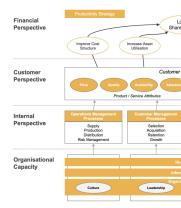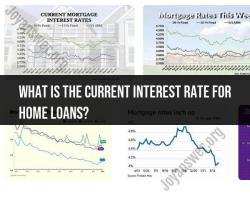When does it pay to refinance your mortgage?
Refinancing your mortgage can be a smart financial move in certain situations, but it's important to carefully consider when it's worth it. Here are some common scenarios when refinancing your mortgage may be beneficial:
Lower Interest Rates: One of the primary reasons to refinance is to secure a lower interest rate on your mortgage. If current interest rates are significantly lower than the rate on your existing mortgage, refinancing can lead to lower monthly payments and potentially save you money over the life of the loan.
Reduced Monthly Payments: Refinancing can extend the loan term, which may result in lower monthly mortgage payments. This can be helpful if you're facing financial challenges or want to free up cash for other expenses.
Change in Loan Type: If you have an adjustable-rate mortgage (ARM) and want to switch to a fixed-rate mortgage for stability, or if you have a fixed-rate mortgage and want to switch to an ARM for a lower initial rate, refinancing can facilitate this change.
Debt Consolidation: You can use a cash-out refinance to consolidate high-interest debt, such as credit card debt, into your mortgage. This may reduce your overall interest payments and simplify your finances.
Shorten Loan Term: If you're in a better financial position and can afford higher monthly payments, refinancing to a shorter loan term (e.g., from a 30-year to a 15-year mortgage) can help you pay off your loan faster and save on interest.
Improved Credit Score: If your credit score has improved significantly since you originally obtained your mortgage, you may qualify for a lower interest rate when refinancing.
Eliminate Private Mortgage Insurance (PMI): If you initially made a small down payment (less than 20%) and have since built up enough equity in your home, refinancing can help you get rid of PMI, which can reduce your monthly costs.
However, it's crucial to consider the costs associated with refinancing, such as closing costs, application fees, and any prepayment penalties from your current mortgage. To determine if refinancing is worth it, calculate your break-even point—the time it will take for the savings on your new mortgage to offset the costs of refinancing.
Additionally, think about your long-term housing plans. If you plan to sell your home in the near future, the benefits of refinancing may not outweigh the costs.
Before refinancing, it's advisable to consult with a mortgage professional to analyze your specific financial situation and determine if it makes sense based on your goals and circumstances.
Timing Is Everything: When It Makes Sense to Refinance Your Mortgage
Whether or not it makes sense to refinance your mortgage depends on a variety of factors, including:
- Interest rates: If interest rates have fallen since you got your mortgage, you may be able to save money by refinancing to a lower interest rate.
- Your loan term: If you have a long loan term, refinancing to a shorter loan term can save you money on interest in the long run.
- Your equity: You'll need to have at least 20% equity in your home to refinance without paying private mortgage insurance (PMI).
- Refinancing costs: There are costs associated with refinancing, such as closing costs and appraisal fees. You'll need to weigh these costs against the potential savings to determine if refinancing is worth it for you.
Making the Right Move: Assessing the Ideal Refinancing Opportunities
The ideal time to refinance your mortgage is when interest rates are low and you have enough equity in your home to avoid PMI. However, it's also important to consider your individual financial situation and goals. For example, if you're planning on selling your home in the near future, it may not make sense to refinance.
Here are some other factors to consider when assessing the ideal refinancing opportunities:
- Your credit score: A good credit score will qualify you for the lowest interest rates.
- Your debt-to-income ratio: Lenders will look at your debt-to-income ratio to determine how much you can afford to borrow.
- Your financial goals: Are you looking to save money on your monthly payments? Shorten your loan term? Get rid of PMI? Once you know your goals, you can choose a refinance option that's right for you.
Mortgage Refinancing: Knowing the Right Moment to Take Action
If you're considering refinancing your mortgage, it's important to shop around and compare rates from multiple lenders. You can also use a mortgage calculator to estimate how much you could save by refinancing.
Once you've found a good deal, it's important to act quickly. Interest rates can change frequently, so you don't want to miss out on a good opportunity.
Here are some tips for knowing the right moment to take action on refinancing your mortgage:
- Monitor interest rates: Keep an eye on interest rates and refinance when rates are low.
- Check your credit score: Make sure your credit score is in good shape before you refinance.
- Get pre-approved: Getting pre-approved for a mortgage can give you an idea of how much you can borrow and what your interest rate will be.
- Shop around: Compare rates from multiple lenders before you choose a refinance loan.
Refinancing your mortgage can be a great way to save money and improve your financial situation. However, it's important to time your refinance right and to choose the best option for your individual needs.













